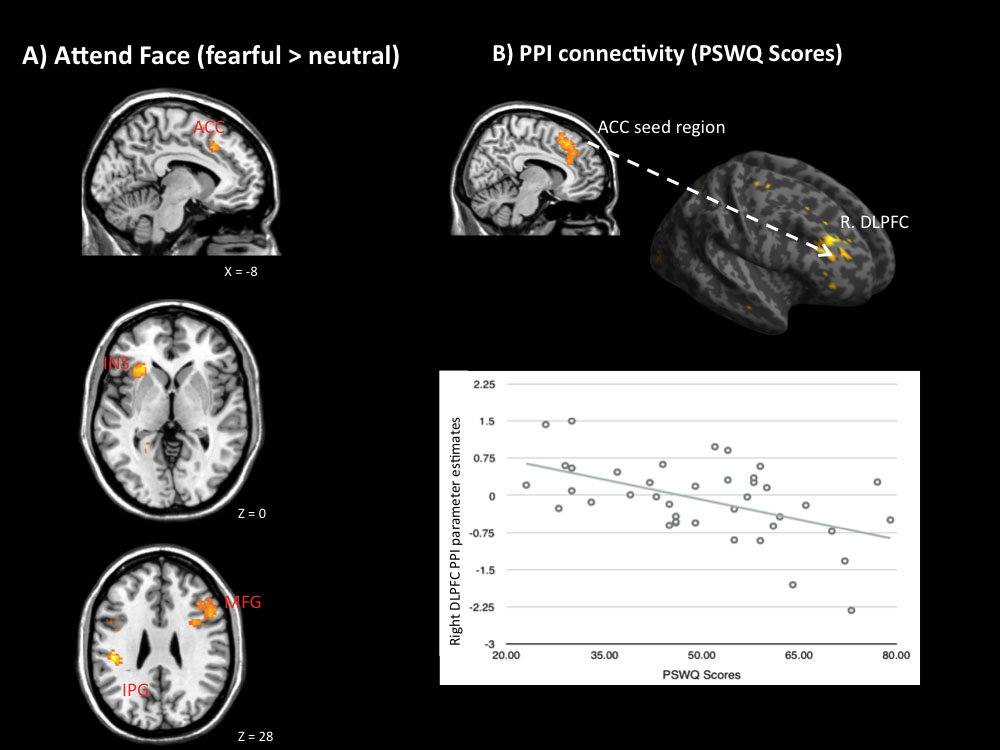New study indicates why worry affects concentration on everyday tasks
- Thursday, November 1, 2018
New research conducted by psychologists into worry shows how it affects regions of the brain that are vital for concentration.

Figure Caption: fMRI scan showing regions of the brain affected by worry when participants performed a task needing attentional control (concentration). These regions are in the a network known to be activated when we focus our attention on difficult tasks.
Professor Paul Allen and researchers from the Department of Psychology have investigated how worry affects regions of the brain that are known to be important for concentration, or what cognitive psychologists call ‘attentional control’.
Participants in the study were assessed to determine how often and how intensely they experienced worrying thoughts. The participants took part in a functional Magnetic Resonance Imaging (fMRI) scan whilst completing a task which required different levels of attentional control. The fMRI scans showed that, whilst all participants were able to effectively complete the task, higher levels of worry were associated with greater activity and reduced connectivity in regions of the brain important for attentional control. This was apparent particularly in the frontal cortex.
Professor Allen said “Everyone worries about things from time to time- some people more than others. Psychologists have known for some time that worry can affect our concentration, especially when we need to focus on difficult tasks. This finding suggests that worry can lead to less efficient use of neural resources and may explain why worry affects our ability to concentrate on everyday tasks.”
More broadly the study has implications for our understanding of how emotions like worry and anxiety can affect the brain and its ability to function normally.
To read the journal article, please click here.
The University of Roehampton’s Department of Psychology publishes innovative research in the fields of psychotherapy, developmental psychology, neuroscience and arts therapies, working alongside such distinguished organisations as the NHS and London’s Science Museum.